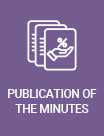BanRep minutes: The Board of Directors of Banco de la República voted by majority to increase the monetary policy rate by 25 basis points (bps) bringing it to 13.25%
In its policy discussion, the Board considered the following elements:
- The slowdown in economic activity which was noticeable as of the fourth quarter of 2022 has continued through to the first months of 2023, albeit at a slower pace than expected. This can be identified in the economic monitoring indicator (ISE in Spanish), with a drop in the annual change from 5.8% in January to 3.1% in February. This trend is mirrored by other leading indicators such as energy demand, vehicle registrations, imports in dollars and the loan portfolio, which have been recording low and, in some cases, negative growth. Based on this information, the technical staff increased its GDP growth forecast to 1% for 2023, meaning that the economy continues to maintain the high output level reached in 2022, with a moderate expansion this year.
- The annual inflation in March remained relatively stable, at a level slightly above the 13% annual rate that has been noted since December. This behavior reflects in part the decline of annual food inflation, which between February and March fell from 24.1% to 21.8%, in a context of good supply and reduced import costs. Conversely, services such as health, transportation, and recreation, among others, have continued to push inflation upwards, which was reflected in the 47 bps increase in core inflation excluding food and regulated items seen in March. Nonetheless, annual producer price inflation, which contracted in March for the fifth consecutive month, indicates that cost pressures are easing and signals that consumer inflation will begin to decline in the coming months.
- Total inflation expectations for one-year and longer-term horizons have begun to fall but remain above target. The Monthly Expectations Survey (EME in Spanish) of economic analysts conducted by Banco de la República in April indicated that the median of twelve-month expectations fell from 7.2% to 7.0%, remaining at 5.0% for yearend 2024, with two-year ahead expectation at 4.0%. However, inflation expectations for yearend 2023 increased according to the survey, from 9.0% to 9.3% for headline inflation and from 8.7% to 9.4% for non-food inflation.
- The technical staff expects the current account deficit to narrow from 6.2% of GDP in 2022 to 4.1% by the end of 2023. The moderation of the external imbalance would primarily be attributed to a weakening in domestic demand, which is already noted in the drop in imports. Additionally, the declines in factor income seen would be less negative as profits remitted abroad by companies with FDI in Colombia would be lower. This is due in part because the 2022 tax reform increased the tax rates for oil and coal producing companies when international commodity prices exceeded a certain threshold, as was the case.
- The U.S. Federal Reserve Bank and the European Central Bank raised their policy interest rates again in the face of persistently high inflation levels, and slightly higher rates are now expected over the forecast horizon. The steeper cost of global financing, the erosion of real income due to high levels of global inflation and ongoing geopolitical tensions will continue to impact the world economy and could slow external demand. The extent of the risks from the recent bank failures in the United States and Europe continues to be relevant for the global economy.
- Colombia's favorable assessment under Article IV of the the IMF and the most recent ratification that the country meets eligibility conditions for access to the Flexible Credit Line, an instrument available only to countries with strong macroeconomic policy frameworks, is an acknowledgment of Colombia's prudent economic policy management and contributes to improving market confidence.
Based on these considerations and other relevant issues regarding the current economic situation and its outlook, all members of the BDBR agreed on the need to maintain a restrictive monetary policy stance to enable inflation to converge toward its target. Although the directors are confident that inflation will soon begin to ease, divergent opinions regarding the policy rate adjustment led four directors to vote in favor of a 25 bps interest rate increase, two directors to hold the rate unchanged, and one director voted for a 50 bps increase.
The Directors with the majority vote acknowledge that policy rate increases effects on aggregate demand are becoming evident, as shown by the leading indicators mentioned above. However, they emphasize that inflation has not yet begun to decline, unlike in most Latin American countries. In particular, they point out that the core inflation continues to be high and on an upward trajectory. They underline that, although the measures of inflation expectations for terms above a one-year horizon show downward adjustments, those for yearend 2023 for both headline and non-food inflation continue high and on an ascendant path, which contributes to upholding price indexation mechanisms. Moreover, a member of this group stated that although there is a fiscal adjustment taking place, which contributes to reducing excess demand and the current account imbalance, there continues to be significant fiscal pressure which limits the opportunity for a less contractionary monetary policy.
The Directors who voted to keep the policy rate unchanged, at its 13% level, consider this to already be a contractionary stance since its actual real level has been situated for several months above the neutral interest rate calculated by the technical staff. This stance has already had obvious effects by weakening aggregate demand and decelerating economic activity, as confirmed by numerous leading indicators. In these circumstances, they prefer to wait for the full impact that the 11.25 percentage point increase in the aggregate policy rate since September 2021 will have on the economy. In this regard, they recall that transmission lags in monetary policy changes are normal. Likewise, they highlight that, by 2023, a partial correction of external and fiscal imbalances is projected, which would lead to lower demand pressures. They emphasize that food inflation corrections have already begun and will possibly continue with the improvement in weather conditions that contribute to increasing the food supply. They emphasize that the observed decrease in the producer price index, both in its local and imported components, points to lessening cost pressures, which creates favorable conditions for consumer inflation to begin to decline.
The Director who voted for a 50 bps increase highlights that headline inflation, as well as core inflation, remain elevated, while the latter continues to show significant increases such as those that occurred in March, when it rose 47 bps, driven by price indexation. This characteristic makes this core inflation measure less sensitive to interest rate increases. In this regard, he expressed concern about the behavior of non-food inflation expectations for the end of 2023. Furthermore, he noted that the current account deficit of 6.2% as a proportion of GDP at the end of 2022 and its projection of 4.1% for 2023 continues to be a considerable external imbalance, which requires hastening the adjustment process of the Colombian economy. In his opinion, a more gradual policy would result in a protracted period of high monetary policy rates that would undoubtedly impact the country's growth capacity.
The Board of Directors highlighted that the decision adopted is consistent with the objective of driving inflation toward the 3% target over the forecast horizon and that future decisions will be determined according to new information available.














.png)

































